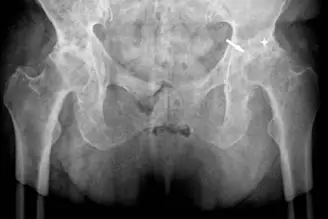From healthcentral.com
Drinking can trigger psoriasis flares and interfere with your medication. Here’s why—and how to drink safely with psoriasis
If you have psoriasis, you know that specific behaviours, from smoking to using certain laundry detergents, can make your skin worse. One of these triggers is drinking alcohol.
"For patients who have psoriasis, alcohol use is associated with a more severe form of the disease," explains Brendan Camp, M.D., a dermatologist with MDCS Dermatology in New York. Frequent drinking could also make your psoriasis meds less effective and even increase your risk for health problems that are more likely with psoriasis.
At the same time, people with psoriasis (PsO), tend to be heavier drinkers, in part because of how psoriasis can affect mental health. It's a complex relationship, for sure. Let’s take a closer look at the interplay between alcohol and psoriasis and what you can do to support your skin—while still indulging in the occasional drink.
Why Alcohol May Trigger Psoriasis Flares
Booze alone doesn't cause psoriasis. But drinking could make it harder to keep your skin condition under control. People with psoriasis who drink tend to have more severe symptoms, according to a review on psoriasis and alcohol published in the journal Psoriasis: Targets and Therapy.
Psoriasis is an autoimmune condition driven by excess inflammation. And any kind of stressor, whether it's emotional or environmental, has the potential to ramp up skin inflammation and trigger a flare, says Erum Ilyas, M.D., a dermatologist with Schweiger Dermatology Group in Philadelphia.
While you might think of it as an activity that helps you unwind, drinking alcohol is actually one of those stressors. Chemicals that your body produces when metabolizing alcohol can trigger systemic inflammation, which can lead to an uptick in psoriasis symptoms, explains the Psoriasis: Targets and Therapy review. These same chemicals have also been found to spur the growth of skin cells, which drives the development of psoriasis scales and plaques, as well as negatively impact the fatty barrier that protects the outer layer of the skin, the article notes.
That's not to say a single cocktail or a glass or wine will send your skin from zero to 60. Rather, it's thought that regular drinking could add to your body's overall stress burden, creating a higher level of baseline inflammation that could add up to more aggressive symptoms. "Alcohol, smoking, stressful lifestyles… all of these things are compounding factors. They can introduce more inflammation and make it more of an uphill battle to manage your psoriasis," says Dr. Ilyas.
And psoriasis that isn’t well-controlled can make a person more prone to related health conditions. That includes psoriatic arthritis, heart disease, liver disease, and cancer, reports an American Journal of Clinical Dermatology review.
Alcohol and Psoriasis Treatment
Booze doesn't just have the potential to irritate your skin. It can also make psoriasis harder to manage by making your meds less potent. "The use of alcohol can negatively impact a patient's response to systemic treatment," Dr. Camp says.
Oral psoriasis medications like methotrexate and acitretin are processed through the liver, the same organ that processes alcohol, per an International Journal of Molecular Sciences review. (There aren't any known interactions between alcohol and psoriasis meds such as biologics, steroids, or traditional DMARDs.) "So there can end up being a competition. Will the alcohol get metabolized or the drug? If you can't metabolize the drug the right way, how will that affect your psoriasis? It could make it harder to control one's symptoms, Dr. Ilyas says. And in the long-term, this competition could force the liver to work harder, and potentially lead to liver damage.
Regardless of what type of drug you're on, there's something else to consider: Drinking might make it tougher to stick to your treatment regimen. In one Archives of Dermatology study that attempted to figure out what factors reduce psoriasis patients' medication compliance, alcohol use was at the top of the list.
So, Can You Drink if You Have Psoriasis?
Alcohol probably doesn't have to be entirely off-limits if you have psoriasis, say Dr. Ilyas and Dr. Camp. But if you choose to drink, you should aim for moderation. According to the American Academy of Dermatology (AAD), men who have more than two drinks per day or women who have more than one a day may experience fewer or no remissions or notice that their treatment is less effective or stops working.
You'll reap big benefits, on the other hand, by keeping your alcohol intake in check. Think: Longer stretches where you're symptom-free, milder symptoms when you do flare, a lower risk of related health problems, and less chance for liver damage, the AAD says.
Psoriasis and Alcoholism
Even though alcohol can worsen psoriasis, on the whole, people with psoriasis tend to drink more compared to those without the condition, and heavier alcohol intake is tied to a higher risk for psoriasis, according to the Psoriasis: Targets and Therapy review. It's no secret that psoriasis can be a big emotional burden, and some patients turn to alcohol to help them carry that weight, according to the American Journal of Clinical Dermatology review.
"Seeing psoriasis on your skin is a stressor in itself, and it may make people more prone to depression," Dr. Ilyas says. But drinking as a means to cope can make you—and your skin—feel worse. "We wouldn't want these things to have a domino effect where you're dealing with a flare, you drink more because you're under more stress, then you flare more. It can spiral," she adds.
That said, there's not enough evidence to show that heavy drinking causes psoriasis, or that having psoriasis automatically predisposes someone to alcohol abuse, say Dr. Ilyas and Dr. Camp.
When to Seek Help
Some dermatologists make it a point to discuss lifestyle habits like drinking with their patients and may even use screening tools to identify alcohol use that's potentially problematic, Dr. Camp says. Two common options, which aren't specifically geared towards psoriasis patients but are still effective, include the CAGE and AUDIT screeners. They're available to anyone for free online. CAGE is a simple yes-or-no questionnaire on high-risk alcohol behaviours and AUDIT involves multiple choice questions assessing a person's drinking habits.
If a screening test suggests that your drinking could be problematic, or if you feel like your alcohol consumption could be interfering with your psoriasis, let your dermatologist know. Together, you can come up with a plan to address the issue and get your drinking, and your psoriasis, under control.
The Bottom Line on Psoriasis and Alcohol
Frequent drinking can be bad for your psoriasis, but having psoriasis might make you more prone to heavier intake. There's a good chance that your symptoms will ease up by keeping alcohol in moderation. So keep an eye on the number of drinks you consume each day or week—your skin will thank you.
https://www.healthcentral.com/condition/psoriasis/alcohol-and-psoriasis



